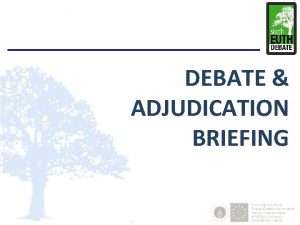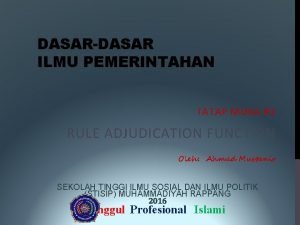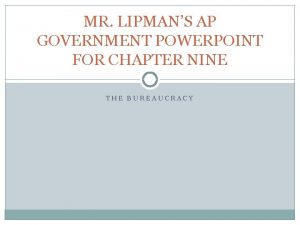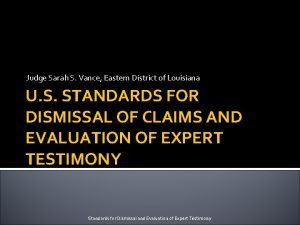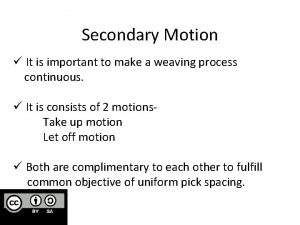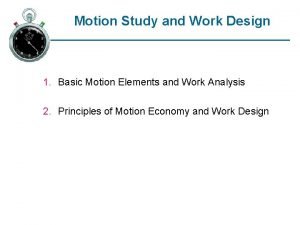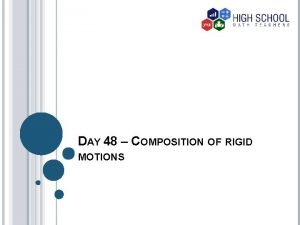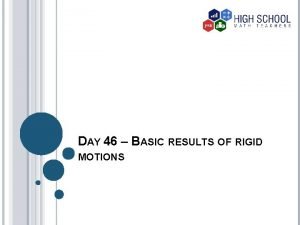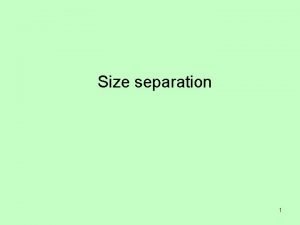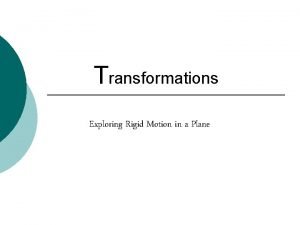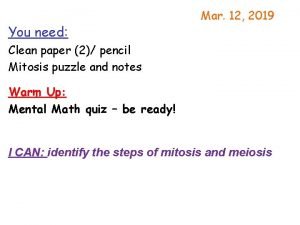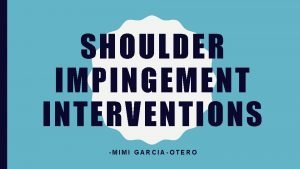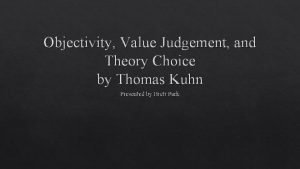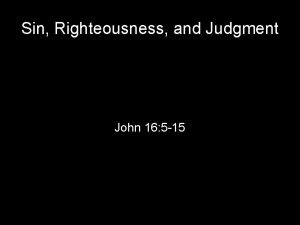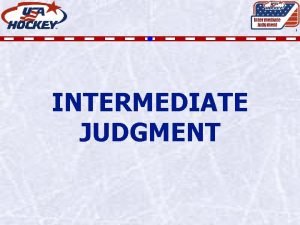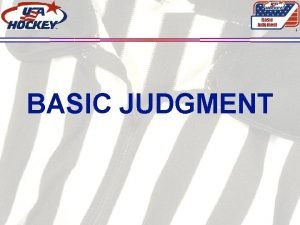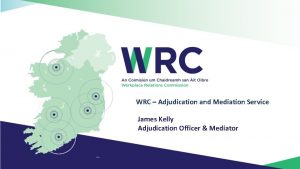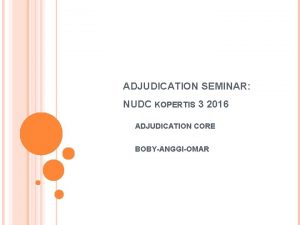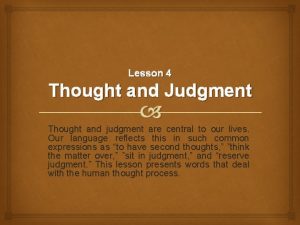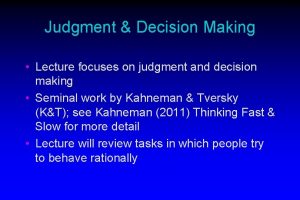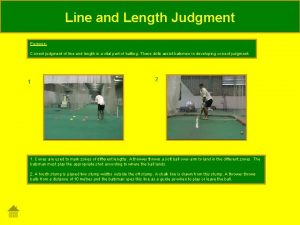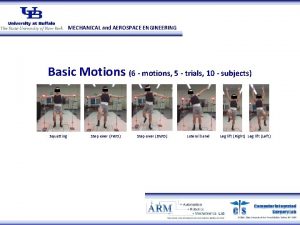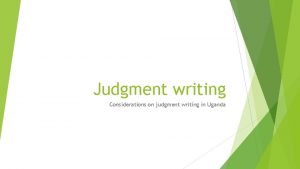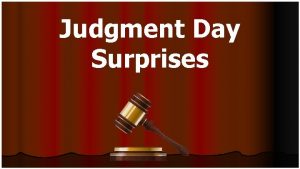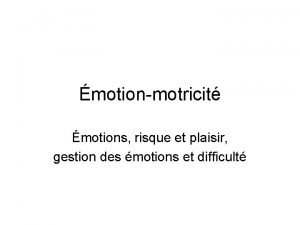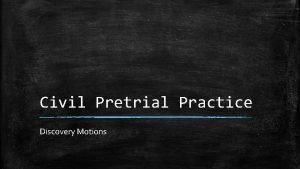Summary Judgment and Summary Adjudication LA 310 Motions





















- Slides: 21

Summary Judgment and Summary Adjudication LA 310

Motions for Summary Judgment or Summary Adjudication CCP section 473(c); FRCP Rule 56 Defined: Motions made during civil litigation to dispose of all or parts of a case without a trial when there is no genuine issue as to the material facts of the case for a jury to decide and a party is entitled to judgment as a matter of law.

Motions for Summary Judgment or Summary Adjudication The purpose of Summary Judgment and Summary Adjudication Motions is to provide courts with a mechanism to cut through the parties pleadings in order to determine whether, despite their allegations, trial is in fact necessary to resolve their dispute

Motions for Summary Judgment or Summary Adjudication Summary Judgment – Resolves the entire action before trial in favor of one party – Plaintiff’s case is dismissed because Cannot establish an element of the cause of action or Defendant has a complete defense (i. e. Statute of Limitations) – Defendant’s case is dismissed because All plaintiff’s allegations are true Defendant has no valid defenses

Motions for Summary Judgment or Summary Adjudication (“Partial Summary Judgment”) – Available to dispose of one or more of the following: A cause of action An affirmative defense A claim for punitive damages An issue of legal duty (fiduciary duty, contractual duty, statutory duty) – Eliminates parts, but not all, of a party’s case

Motions for Summary Judgment or Summary Adjudication of Issues – January 1, 2012 – CCP section 437 c(s)(1) – Permits Summary Adjudication of single issue (that does not dispose of case) if the parties stipulate or agree to bringing the motion – Examples: Issues which are important but not dispositive Types of damages – Federal procedure allows this type of motion w/o stipulation of the parties

Motions for Summary Judgment or Summary Adjudication Test that Court applies: “Is there a triable issue of a material fact for a court or jury to decide ? ” Note: Court does not “weigh” the evidence Credibility of witnesses not considered Need not meet burden of proof Only need to produce conflicting evidence

Motions for Summary Judgment or Summary Adjudication When Summary Judgment or Adjudication is successful: – No admissible evidence to prove the facts the other side has pleaded – Summary Judgment is most successful in simple cases – Summary adjudication is useful to simplify case by eliminating causes of action, defenses, etc.

Motions for Summary Judgment or Summary Adjudication Plaintiffs are generally not successful on MSJ or MSA – Because plaintiff must prove there is no dispute as to all elements of his case and that there are no facts to support defendant’s defenses – Defendant merely needs to show that one element of plaintiffs cause of action cannot be proved MSJ or MSA are generally not successful where the mental state or credibility of witnesses is at issue

MSJ/MSA Procedure Timing for the Motion – when can you file? – Earliest date – 60 days after general appearance of party against whom the motion is made – Latest date – about 3 ½ months (105 days) before trial Motion must be heard 30 days prior to trial and Must give 75 days notice of the hearing – Continuance of trial date extends time for motion (unlike discovery cut-off)

MSJ/MSA Procedure Content of the Motion 1. Notice of Motion 2. Separate Statement of Undisputed Material Facts*** 3. Memorandum of Points and Authorities 4. Evidence • Declarations • Discovery responses • Judicial Notice • Proof of Service

MSJ/MSA Procedure Notice of Motion – Similar in format to other Notices – 75 calendar days notice of hearing – Notice must state if Motion for Summary Judgment, Motion for Summary Adjudication or both If Notice is only for Motion for Summary Judgment court cannot grant Summary Adjudication – Specify the documents you are relying on to support the motion

MSJ/MSA Procedure Separate Statement of Undisputed Material Facts – A pleading that specifies all material facts that moving party contends are undisputed and a citation to evidence to support contention – Material fact – important facts as opposed to immaterial facts that are not necessary to the resolution of the issues in the case –*

MSJ/MSA Procedure Evidence to Support Motion – Declarations from Witnesses Portions of depositons, interrogatory answers Answers to Requests for Admissions Documentary evidence – Request for Judicial Notice of certain facts

MSJ/MSA Procedure Judicial Notice – An evidentiary procedure in which the judge is ask to rule that certain facts are true and need not be proved by a party because the facts are beyond reasonable dispute – Examples Laws of the State Content of public records – court files Meaning of words and phrases Scientific basis of accepted scientific tests

MSJ/MSA Procedure Memorandum Points and Authorities – Similar to other Points and Authorities – Cannot exceed 20 pages without prior court order – If over 10 pages must have table of contents and table of authorities

MSJ/MSA Procedure Proof of Service of Motion and Supporting Documents – 75 calendar days notice (plus additional days for method of service) – Must be served on all counsel

MSJ/MSA Procedure Opposition to MSJ/MSA – Timing – filed and served at least 14 calendar days prior to the hearing – Content of Opposition Separate Statement of Disputed and Undisputed Facts Memorandum of Points and Authorities Evidence in opposition Objections to evidence, if any

MSJ/MSA Procedure Opposing Parties Separate Statement of Disputed and Undisputed Facts – Must recite the moving party’s undisputed facts and respond to each – If moving party’s facts are disputed must cite to evidence that supports the position – May include other material facts that are in dispute – Responding party is entitled to electronic copy of moving party’s Separate Statement * *

MSJ/MSA Procedure Objections to Evidence – If there are objections to moving party’s evidence must cite to the evidence and state the objections – Must include a proposed order for the court to rule on the objections – Specific format required by the Rules of Court* Proposed Order on Objections*

MSJ/MSA Procedure Reply to Opposition – Filed 5 days prior to the hearing – Objections to responding party’s evidence – Further points and authorities with legal argument
 Asian parliamentary debate speaker roles
Asian parliamentary debate speaker roles Rule adjudication function adalah
Rule adjudication function adalah Cec adjudication
Cec adjudication Bureaucratic adjudication ap gov
Bureaucratic adjudication ap gov Zoho background checks
Zoho background checks Ontario disability training
Ontario disability training Flow of debate
Flow of debate Sarah s. vance
Sarah s. vance The judgment of paris summary
The judgment of paris summary Secondary motions of weaving
Secondary motions of weaving Basic motion
Basic motion Composition of rigid motion
Composition of rigid motion Song leader hand signals
Song leader hand signals Ocean motions
Ocean motions Basic rigid motions
Basic rigid motions Moderately coarse powder sieve number
Moderately coarse powder sieve number Dot translater
Dot translater True motions
True motions Mitosis flip book pdf
Mitosis flip book pdf Mimi garcia h
Mimi garcia h Objectivity value judgment and theory choice
Objectivity value judgment and theory choice Sin righteousness and judgement
Sin righteousness and judgement
